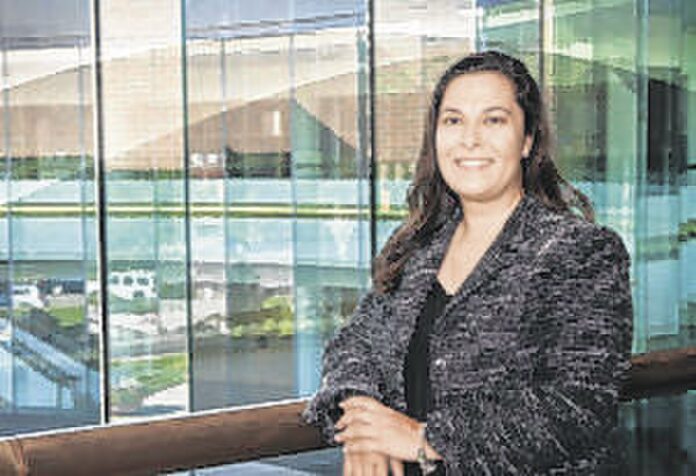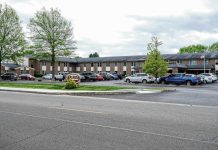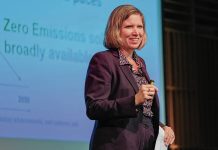Fifty years ago in February, the city formalized by ordinance the Columbus Human Rights Commission in an effort to ensure equal opportunities for residents. The commission’s stated mission is to build and maintain an inclusive community.
Among the commission’s methods for doing so is educating the public.
The commission will do just that at its annual dinner meeting by presenting the 2019 William R. Laws Human Rights Award to the Rev. Clement T. Davis, pastor of St. Bartholomew Catholic Church and a person known for improving relationships among all people, and presenting a moderated panel discussion focusing on the topic of immigration.
The meeting starts at 6:30 p.m. Thursday at The Commons, 300 Washington St. in downtown Columbus.
Winners of the Benjamin M. King Essay and J. Irwin Miller Art contests also will be honored.
The featured panelists are Neeraj Kaushal, professor of social policy at the Columbia University School of Social Work in New York, and Angela Adams, an attorney and the owner and manager of Carmel-based Adams Immigration Law LLC.
Human Rights Commission director Aida Ramirez said the office monitors the types of issues that come up frequently in the community, including questions posed to the commission. Sometimes that helps determine a topic that the commission would like to address at its annual meeting, she added.
“Overwhelmingly, 2018 and 2019 the issues have been over immigration — different types of issues related to immigration. Such as, does Columbus have refugees? Are immigrants allowed to have driver’s licenses? Are they allowed to partake in social services in the community? What is the need for DACA (Deferred Action for Childhood Arrivals) in our community?”
Adams was asked to be a panelist because immigration is her line of work, she’s a board member with Su Casa Columbus — a nonprofit that serves the local Latino community — and she’s previously made presentations on immigration in the city, Ramirez said.
Kaushal’s name was mentioned as a possible panelist when the commission researched the economics of immigration and came across articles she authored on the subject. The articles related to “things we should be aware of in Bartholomew County as it relates to this segment of the population,” Ramirez said.
“She graciously accepted,” Ramirez added.
Immigration as a discussion topic not only is timely but fits well with the commission’s mission, Ramirez said.
According to the 1969 ordinance that formalized the commission, which started in more of a volunteer form in 1962, “The promotion of equal opportunity without regard to race, creed, color, national origin or ancestry … is the purpose of this ordinance.”
The commission’s main mission is the enforcement of the city’s anti-discrimination ordinance, whatever iteration it happens to be in a given year, Ramirez said. That started as discrimination with housing back in the 1960s and has changed over time.
“We have to discharge our duties to enforce the ordinance, but we also take very seriously the duty to educate the public, and to provide them with facts and be a resource center for individuals. The topic of immigration is such that it’s highly nuanced, there’s a lot of information involved. …It’s really complicated,” Ramirez said.
A panel discussion on the topic can help answer people’s questions and give them information to make informed decisions, she said.
It’s important for a community to have a local human rights commission, Ramirez said, because there’s no guarantee or assurance that an individual will be able to take their complaint to a state commission or a federal board.
“There’s nothing like walking into an office and seeing someone that you know that might be your neighbor, or might be someone that you just saw in the grocery store, someone you have a tangible connection with, and say, ‘This happened to me. What can you help me with? What can I do about this?’” Ramirez said.
[sc:pullout-title pullout-title=”About the dinner” ][sc:pullout-text-begin]
What: 2019 Columbus Human Rights Commission annual dinner meeting
When: 6:30 p.m. Thursday
Where: The Commons, 300 Washington St., Columbus
Agenda:
Presentation of 2019 William R. Laws Human Rights Award to the Rev. Clement T. Davis
Honoring of the 2019 Benjamin M King Essay and J. Irwin Miller Art contests
Moderated panel discussion about immigration, featuring Neeraj Kaushal, professor of social policy at the Columbia University School of Social Work in New York, and Angela Adams, an attorney and the owner and manager of Carmel-based Adams Immigration Law LLC.
[sc:pullout-text-end][sc:pullout-title pullout-title=”About the commission” ][sc:pullout-text-begin]
What: Columbus Human Rights Commission
Established: 1962 by mayoral proclamation; formalized by city ordinance 1969
Mission statement: To lead Columbus in building and maintaining an inclusive community by enforcing the Human Rights Ordinance, educating the public, challenging attitudes and systems that create barriers to equality, empowering community members to advance this mission
To learn more: Visit columbus.in.gov/human-rights or call 812-376-2532
[sc:pullout-text-end]





